Related Research Articles

The Institute of Mathematics and its Applications (IMA) is the UK's chartered professional body for mathematicians and one of the UK's learned societies for mathematics.
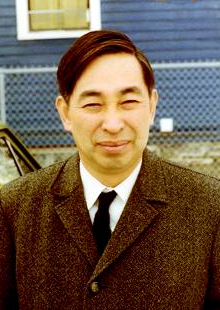
Kiyosi Itô was a Japanese mathematician who made fundamental contributions to probability theory, in particular, the theory of stochastic processes. He invented the concept of stochastic integral and stochastic differential equation, and is known as the founder of so-called Itô calculus. He also pioneered the world connections between stochastic calculus and differential geometry, known as stochastic differential geometry. He was invited for the International Congress of Mathematicians in Stockholm in 1962. So much were Itô's results useful to financial mathematics that he was sometimes called "the most famous Japanese in Wall Street".
Martha W. Alibali is a Vilas Distinguished Achievement Professor of Psychology and Educational Psychology at the University of Wisconsin–Madison, and an investigator at the Wisconsin Center for Education Research.
The Institute for Mathematics and its Applications located at the University of Minnesota is an organization established in 1982 by the National Science Foundation (NSF) of the United States.
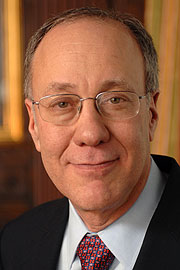
Roger Bruce Myerson is an American economist and professor at the University of Chicago. He holds the title of the David L. Pearson Distinguished Service Professor of Global Conflict Studies at The Pearson Institute for the Study and Resolution of Global Conflicts in the Harris School of Public Policy, the Griffin Department of Economics, and the College of the University of Chicago. Previously, he held the title The Glen A. Lloyd Distinguished Service Professor of Economics. In 2007, he was the winner of the Sveriges Riksbank Prize in Economic Sciences in Memory of Alfred Nobel with Leonid Hurwicz and Eric Maskin for "having laid the foundations of mechanism design theory". He was elected a Member of the American Philosophical Society in 2019.
Avner Friedman is Distinguished Professor of Mathematics and Physical Sciences at Ohio State University. His primary field of research is partial differential equations, with interests in stochastic processes, mathematical modeling, free boundary problems, and control theory.

Chien-Fu Jeff Wu is a Taiwanese-American statistician. He is the Coca-Cola Chair in Engineering Statistics and Professor in the H. Milton Stewart School of Industrial and Systems Engineering at the Georgia Institute of Technology. He is known for his work on the convergence of the EM algorithm, resampling methods such as the bootstrap and jackknife, and industrial statistics, including design of experiments, and robust parameter design.

Arieh Iserles is a computational mathematician, currently Professor of the Numerical Analysis of Differential Equations at the University of Cambridge and a member of the Department of Applied Mathematics and Theoretical Physics.
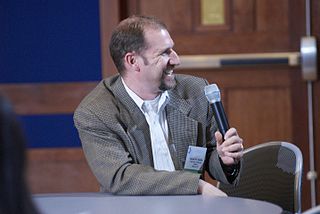
David Williamson Shaffer is the Vilas Distinguished Achievement Professor of Learning Science at the University of Wisconsin–Madison in the department of Educational Psychology, the Obel Foundation Professor of Learning Analytics at Aalborg University in Copenhagen, a Data Philosopher at the Wisconsin Center for Education Research, and Principal of EFGames, LLC.
András Prékopa was a Hungarian mathematician, a member of the Hungarian Academy of Sciences. He was one of the pioneers of stochastic programming and has been a major contributor to its literature. He amended one of the three basic model types of the discipline, chance-constrained programming, by taking into account stochastic dependence among the random variables involved. One of his main results in the area concerns the convexity theory of probabilistically constrained stochastic optimization problems. He introduced the concept of logarithmic concave measures and provided several fundamental theorems on logconcavity, which supplied proofs for the convexity of a wide class of probabilistically constrained stochastic programming problems. These results had impact far beyond the area of mathematical programming, as they found applications in physics, economics, statistics, convex geometry and other fields.
Wendell Helms Fleming was an American mathematician, specializing in geometrical analysis and stochastic differential equations.

Thomas G. Kurtz is an American emeritus professor of Mathematics and Statistics at University of Wisconsin-Madison known for his research contributions to many areas of probability theory and stochastic processes. In particular, Kurtz’s research focuses on convergence, approximation and representation of several important classes of Markov processes. His findings appear in scientific disciplines such as systems biology, population genetics, telecommunications networks and mathematical finance.

Bruce Edward Hajek is a Professor in the Coordinated Science Laboratory, the head of the Department of Electrical and Computer Engineering, and the Leonard C. and Mary Lou Hoeft Chair in Engineering at the University of Illinois Urbana–Champaign. He does research in communication networking, auction theory, stochastic analysis, combinatorial optimization, machine learning, information theory, and bioinformatics.

Rachel Ward is an American applied mathematician at the University of Texas at Austin. She is known for work on machine learning, optimization, and signal processing. At the University of Texas, she is W. A. "Tex" Moncrief Distinguished Professor in Computational Engineering and Sciences—Data Science, and professor of mathematics.

Kavita Ramanan is a probability theorist who works as a professor of applied mathematics at Brown University.
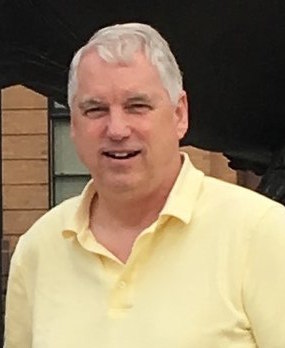
Richard H. Stockbridge is a Distinguished Professor Emeritus of Mathematics at the University of Wisconsin-Milwaukee. His contributions to research primarily involve stochastic control theory, optimal stopping and mathematical finance. Most notably, alongside Professors Thomas G. Kurtz, Kurt Helmes, and Chao Zhu, he developed the methodology of using linear programming to solve stochastic control problems.
Virginia Ruth Young is the Cecil J. and Ethel M. Nesbitt Professor of Actuarial Mathematics at the University of Michigan, and an expert on the mathematics of insurance.

Jean-Marc Vanden-Broeck is a UK mathematician of Belgian origin. He is a Professor of Applied Mathematics at the University College, London.
Panagiotis E. Souganidis is an American mathematician, specializing in partial differential equations.
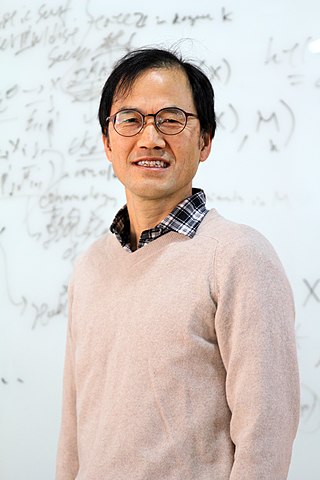
Yong-Geun Oh (Korean: 오용근) is a mathematician and distinguished professor at the Pohang University of Science and Technology and founding director of the IBS Center for Geometry and Physics located on that campus. His fields of study have been on symplectic topology, Floer homology, Hamiltonian mechanics, and mirror symmetry He was in the inaugural class of fellows of the American Mathematical Society and has been a member of Institute for Advanced Study, Korean Mathematical Society, and National Academy of Sciences of the Republic of Korea and is on the editorial boards of Journal of Gokova Geometry and Topology and Journal of Mathematics of Kyoto University.
References
- ↑ "David F. Anderson".
- ↑ David Anderson at the Mathematics Genealogy Project
- ↑ "IMA Prize in Mathematics and its Applications | Institute for Mathematics and its Applications". Archived from the original on 2017-05-22. Retrieved 2017-05-15.
- ↑ "David F. Anderson Awarded Inaugural IMA Prize in Mathematics and its Applications | Institute for Mathematics and its Applications". Archived from the original on 2017-07-12. Retrieved 2017-05-15.